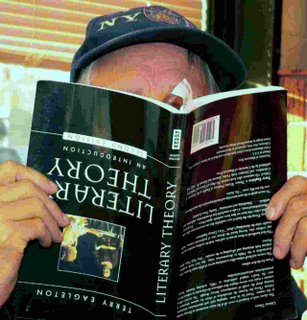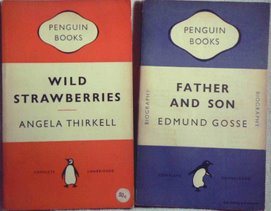New News about Used Books
Isn't NEW NEWS an oxymoron when it comes to the OLD USED book market? The way this newbie sees it, bookstore people are stereotypically standoffish when it comes to claims that something cutting-edge, some gimmick distilled into three or four buzzwords, will secure their future and their profession's unique niche far into the future of the communities we once called home.
There is a certain status, pride of place, accorded the used bookstore owner who never touched a computer's keyboard, let alone sold books on the Internet, yet who continues to pay the rent and put food on the table. I suppose an auto mechanic who only uses handtools to repair Mercedes is accorded high status in that trade.
I think that what would be new news for Québec booksellers, the ones who come from the English community and whose bookstores are in neighbourhoods where many Angophones live, that the 'new news' item that would shake them up with a challenge would be that the crossover trade to the Frenchspeaking and the multicultural market can not only complement the more traditional anglo trade but give that much needed infusion it will take to stay in business for a couple decades to come.
This is purely wishful thinking on my part, I'm certain on one level. Yet I believe that a huge portion of book sales, new and used, is driven by demographics. The demographic boom in nearly universal higher education for the middleclass North American changed 'books' from the late 1950s onward. That college town or urban campus demographic boom has been written and will no longer drive books to a higher plane.
I cannot read the tea leaves about the future demographics that will prove critical for Montreal or provincial used book dealers, but I suspect that the Internet boom we've been through is like the campus boom at the heyday of trade paper and the post-J. D. Salinger era in fiction. Over. Yet sustained at a lower momentum. No longer a boom.
It used to be that in the so-called ethnic book niche, like imagine Bulgarian ex-pats (this is a joke, sort of) running a bookstore and printing press for their confreres - - you get a taste of this in Skvorecky novels - - where the books become used they are so old and neglected. Well that image is old hat as it pertains to Montreal's booming Hispanophone and Arab communities. Stick your noses into one or two bookdealers boutiques in these communities and you may find they look more like the offices for a North American distribution headquarters.
When a United Church "building"is sold to another confessional denomination, to a churchless but soulful clan unrecognisable to U C'ers back in their day, you, the Anglo-Montrealer, know we now face a demographic sea change that will reverberate through the world of booksales, one way or another.
All I'm putting to words here is our regional and Canadian equivalent to the 11 million Hispanophones living in the US without papers. Yet it seems to me, (I'm an old transfuge from the US), that the Americans at least recognize and respond to the demographics of so numerous a neighbour better than we do in Québec. We on the west side of the Main are still stuck specialising in Shakespeare when we could sell more stock if we sold more Molière to Francophones.
I see used books in Arabic, Spanish and even Urdu more often than in Hebrew. That is a no-brainer today. But I can sell MORE textbooks and dictionaries to students studying Spanish than I sell French-English dictionaries to those learning French or ESL.
Let me be blunt: a multilingual Farci-Urdu, Spanish, Arabic, Chinese bookstore, with staff to serve clients in all three languages -- in the right location -- despite the 'birds of a feather' phenomenon of ethnic magnetism -- could have a similar liklihood of success as was enjoyed by the organic restaurant chain Le Commensal. Let your imagination grab onto that one: such a book enterprise could become a distributor.
(My daughter went to a summer daycamp where Chinese, French and Spanish were the languages - all spoken, of necessity, alternately. It WAS NOT some enrichment program, it was the nitty-gritty of demographics.)
If we end on a pipe dream, you should still try to see the writing on the wall. The next new news in used old circles may come from the direction of cultural fusion in the face of a very contemporary demographic infusion. Maybe to be a super-specialized Quebec book person is to deal in multilingual multiplicity?



No comments:
Post a Comment